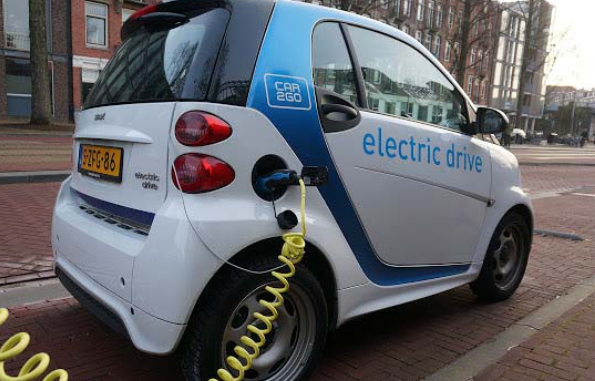
Introduction
Electric vehicles (EVs) have emerged as a transformational force in the automotive industry, poised to redefine the way we drive and address pressing environmental concerns. The rise of EVs represents a pivotal moment in the automotive sector, offering a cleaner and more sustainable alternative to traditional internal combustion engine vehicles. In this comprehensive exploration, we will delve into the profound impact of electric vehicles on both the automotive industry and the environment, unraveling the transformations, challenges, and the vast array of benefits they bring.
1. The Electric Vehicle Revolution: An Evolutionary Journey
The advent of electric vehicles is a testament to human innovation and environmental consciousness. We will explore the evolutionary journey of EV technology, from its early concepts to contemporary electric cars. By tracing the key milestones and technological innovations, we gain insight into how this revolution came to be.
2. Environmental Benefits of Electric Vehicles
Electric vehicles are a beacon of hope for environmental preservation. We will delve into the environmental benefits of EVs, emphasizing their potential to significantly reduce air pollution and mitigate climate change. The reduction of greenhouse gas emissions, the promise of cleaner air quality, and the role of EVs in global sustainability efforts are at the forefront of this discussion.
3. Energy Efficiency and Sustainability: A Greener Path Forward
The energy efficiency of electric vehicles is a game-changer. We will discuss the mechanics of EVs, including regenerative braking and energy recovery, which not only make them more sustainable but also resource-efficient. The shift towards sustainable mobility practices is key to addressing global resource scarcity.
4. Charging Infrastructure and Accessibility: Powering the Future
Charging infrastructure is the backbone of the electric vehicle ecosystem. We will examine the development of charging networks, from home charging stations to expansive public charging infrastructure. The importance of accessibility and standardization in ensuring the widespread adoption of EVs is a central theme.
5. Economic Implications for the Automotive Industry: A Paradigm Shift
The electric vehicle revolution is transforming the automotive industry at its core. We will discuss how automakers are transitioning to electric vehicle production, leading to changes in manufacturing processes, job creation, and shifts in the automotive supply chain. This transition also promises a boon to the global economy.
6. The Role of Government Policies: Driving Change
Government policies play a pivotal role in promoting electric vehicle adoption. We will explore the incentives and regulations that are driving the growth of EVs, including tax credits, emissions standards, and the global push to phase out internal combustion engine vehicles. Governments worldwide are at the forefront of this change, actively pushing for a greener automotive landscape.
7. Technological Advancements: Innovations Shaping the Future
Electric vehicle technology is in a constant state of evolution. We will highlight the latest innovations, from improved battery technology and extended driving ranges to advancements in charging speed and the integration of renewable energy sources. These technological strides are shaping the future of EVs and pushing the boundaries of what is possible.
8. Challenges and Concerns: Navigating the Hurdles
Despite their numerous benefits, electric vehicles face significant challenges. We will address concerns related to battery recycling, raw material sourcing, charging infrastructure expansion, and the environmental impact of manufacturing batteries. Recognizing and addressing these challenges is vital for the continued success of electric vehicles.
9. Consumer Adoption and Awareness: A Crucial Factor
Consumer adoption is pivotal for the success of electric vehicles. We will explore the importance of consumer education, addressing myths and concerns surrounding EVs, and how increasing awareness can drive wider adoption. Informed consumers are at the heart of the EV revolution.
10. The Future Landscape: Electrification Beyond Passenger Cars
Electric vehicles extend far beyond passenger cars. We will examine how electrification is making inroads into commercial vehicles, public transportation, and even the aviation industry, revolutionizing various modes of transportation for a greener future. This broader electrification trend is reshaping the world’s transportation systems.
Conclusion
Electric vehicles are not just an automotive innovation; they are a catalyst for change. Their impact is profound, offering a path to reduced greenhouse gas emissions, cleaner air, and more sustainable mobility. By comprehending the multifaceted impacts, challenges, and myriad benefits of electric vehicles, individuals, industries, and governments can actively prepare for and contribute to a more sustainable, environmentally conscious, and technologically advanced future of transportation. The electric vehicle revolution is not just a change; it’s a transformation, shaping the future of the automotive industry and positively impacting the global environment.

Leave a Reply